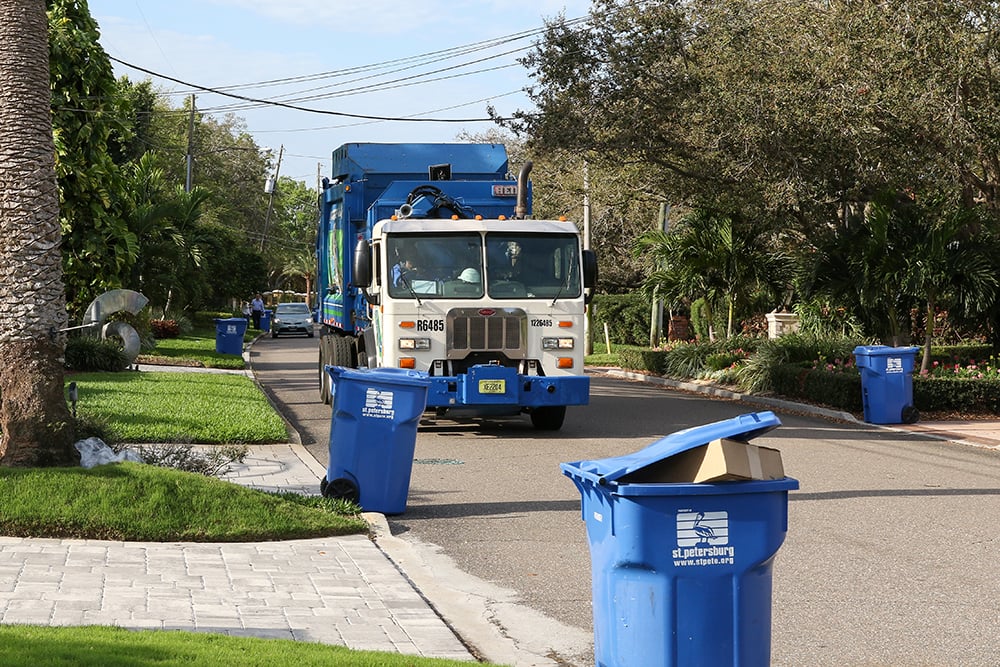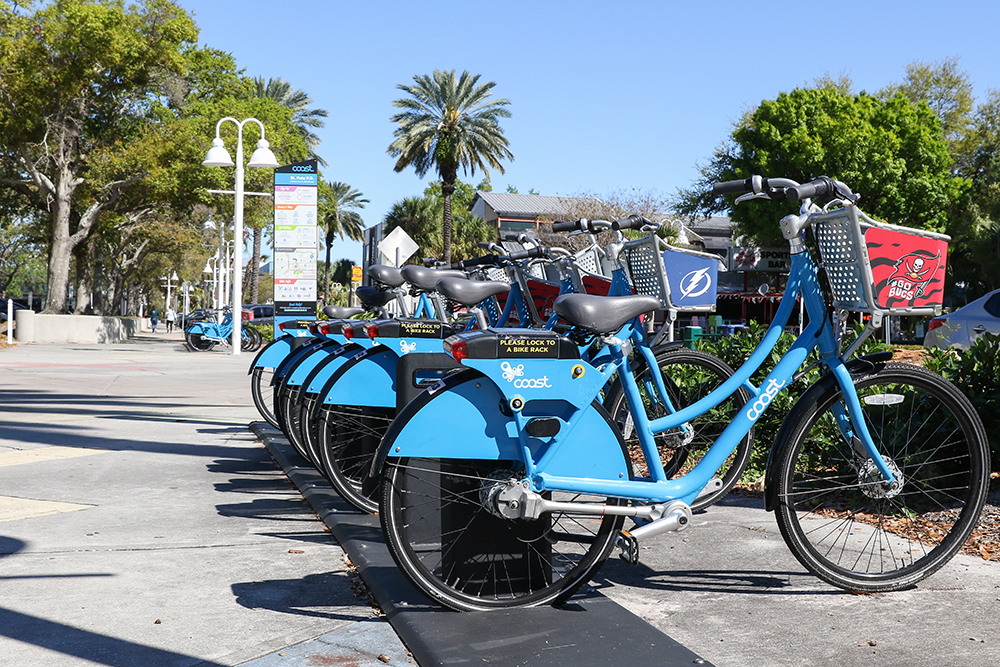As we mark the 49th anniversary of the first Earth Day, it’s important to keep in mind that we should strive to protect the Earth every day. As individuals and communities, we all can work toward creating a more sustainable life by following the three Rs.
What are the Three Rs?
The Three R’s are the components that make up the waste management hierarchy: reduce, reuse, and recycle. This approach calls on us to reduce our consumption, reuse items if possible, and recycle, if the first two steps are not an option. As individuals, incorporating small changes can help conserve energy and reduce our carbon footprint. As communities, implementing larger-scale programs can help preserve natural resources and limit waste while also saving money and landfill space. So what can we do as private citizens? And how is St. Pete working toward solutions as a municipality?
Reduce!
The City of St. Petersburg’s efforts to discourage the use of plastic straws and plastic bags are examples of a municipal-level program aimed at reducing. But it’s not just about straws! The concept is both bigger and more basic than that. If we buy less stuff and use less disposable stuff, we’ll produce less waste. The approach is simple to understand but not always easy to follow. Speaking for myself, I like to buy stuff! Still, I can be responsible in my purchases. I can try to avoid over-packaged items and buy local. I also can think before I buy. Do I really need it? Do I already have something like it? Is it durable, or will it be trash after one use? I can also take simple steps in my daily life. If I must print something, I can print it on both sides of a sheet of paper. I can unsubscribe to catalog mailing lists and sign up for electronic, paperless bills. I can use a water bottle instead of buying bottled. And send an email instead of a snail mail. (Sorry, Grandma, but I’m saving the planet!) All of these efforts add up.
Reuse!
Learning to reuse or repurpose items is an essential component of the waste-management hierarchy. It is especially beneficial for dealing with all the things you (and I) bought before committing to reducing consumption. Two of my weaknesses, clothes and books, can easily be reused by others. They can be donated to local organizations such as Community Action Stops Abuse (CASA) or Keep St. Pete Lit’s BookSpace. Books also can be traded at one of St. Pete’s used-book stores. Household items or furniture can be donated or sold on consignment. And think about your trash before you throw it in the garbage or recycle it. Composting is a great way to repurpose biodegradable waste and help your garden thrive. Instead of bubble wrap, use old newspapers for packing. A jelly jar or coffee mug makes a great vessel to store buttons, seashells, or other items used in sewing, crafting, or making art. Being creative is a wonderful way to repurpose items. If you’ve got it, and you no longer want it, think before you trash it or recycle it.

Recycle!
Finally, if you can’t avoid buying it and you can’t reuse it, then recycle it. St. Petersburg maintains five conveniently located dropoff sites, and (as of the summer of 2015) also provides an extensive pickup program. Approximately 65 percent of eligible homes (an estimated 76,000 addresses) participate in the curbside / alley recycling program. Each month, about 1,100 tons of materials are recycled instead of being incinerated or dumped at a landfill. Recycling Manager Jeff Donnel is pleased with the program’s progress so far, but he also stresses two things: Be mindful of reducing and reusing before you recycle, and understand what can and cannot be recycled in city bins. For details visit www.stpete.org/recycle.
Most glass, cans, cartons, newspapers, and most plastics can be placed in bins. Yard waste, dry-cleaning bags, Styrofoam, and plastic grocery bags do not qualify! Loose plastic bags are a special menace to the machine that sorts recyclables; if you place your items inside such a bag, all of its contents will be trashed. Apply the Rs to the bag question. Reduce the need to deal with them by taking your own sustainable bags to the store. Reuse plastic bags as refuse bags, or place them in retailers’ specially designated recycling bins. If we apply the three Rs in daily life, we can help create a more sustainable community.



